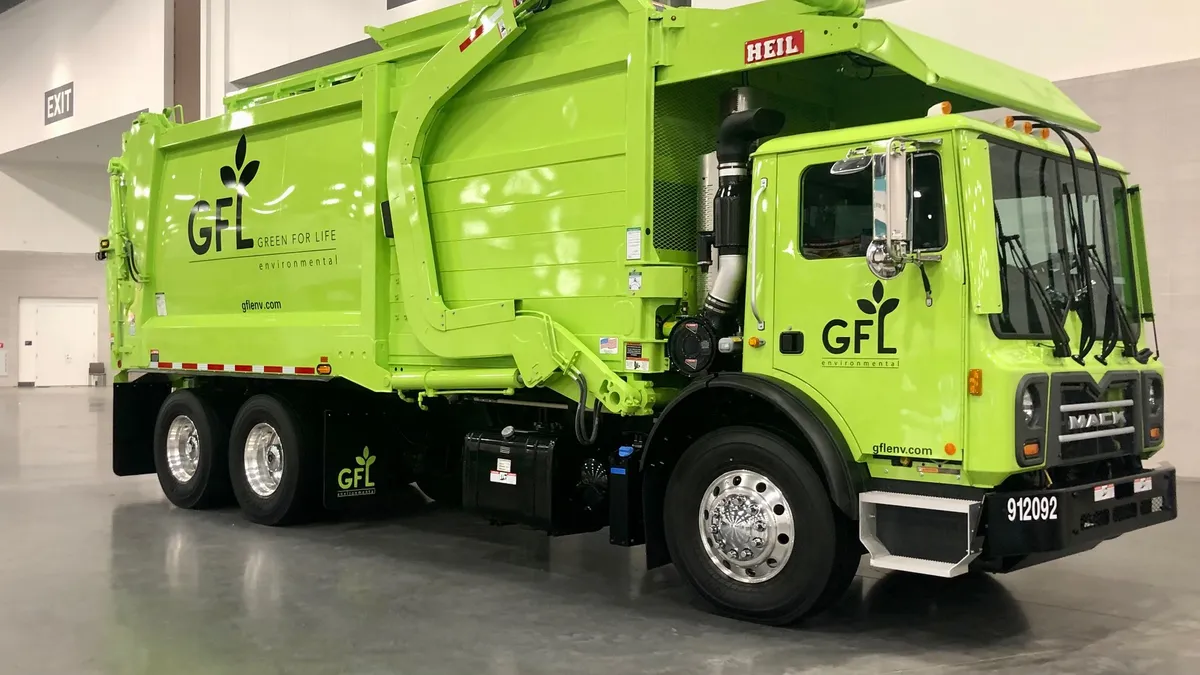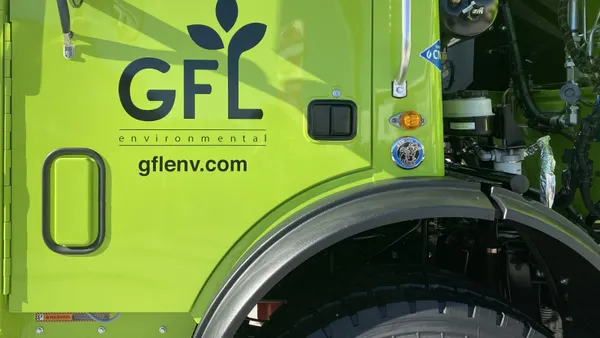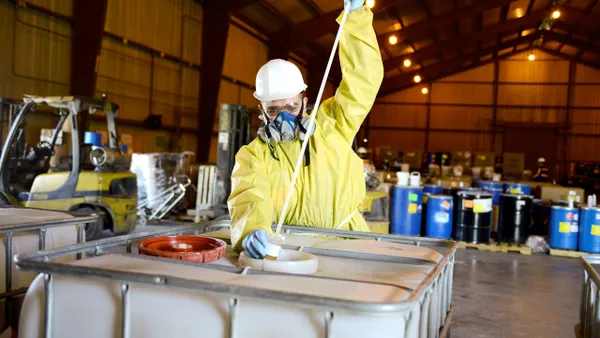All financial information is in Canadian dollars.
- Financial picture: “Stronger than anticipated pricing and volume” fueled revenues $25 million ahead of expectations for the first quarter of 2024, the company reported. GFL still expects to hit its debt leverage target for the year, and S&P recently upgraded its credit rating from a BB- to B+, which CFO Luke Pelosi said on the company’s earnings call would provide GFL with “near-term lower borrowing costs and improved free cash flow conversion.” Adjusted free cash flow was $49.1 million in the first quarter of 2024 compared with negative $50.1 million in the first quarter of 2023. GFL’s base business has grown and become more stable, which has “smoothed over” some of the impacts of major acquisitions and other factors that would limit free cash flow generation, Pelosi said. The “magnitude of the swing is becoming more and more muted,” he said, and he expects more “predictable and stable” cash flow moving forward.
- Solid waste: GFL’s solid waste business continues to power its overall revenue performance, bringing in $1.43 billion in the first quarter. The company reported that underlying margins increased by a percentage point, and the increase would have been greater if not for weather impacts that other waste companies have also reported. In the second quarter, the business is expected to further improve to at least $1.56 billion, Pelosi said on the call.
- M&A: GFL reported spending about $111 million on acquisitions in the first quarter across four acquisitions, which executives said does not include GFL’s acquisition of Angelo’s Recycled Materials in April. So far this year, GFL has spent roughly $500 million on acquisitions, CEO Patrick Dovigi said. The company anticipates spending about $100 million to $150 million on M&A through the remainder of the year.
- Canadian contracts: Toronto has selected GFL as the city’s preferred vendor for an upcoming 10-year recycling contract, Dovigi said. If the deal is finalized, it would be worth more than $50 million annually, or more than $500 million over the life of the contract, according to Dovigi. Already, GFL controls about 60% of the hauling work for the city, with the remainder performed by “mostly city workers,” he noted. GFL is also inching closer to startup of its EPR contracts in multiple Canadian provinces, including Ontario. Those contracts are expected to add $80 million to $100 million in incremental adjusted earnings before income, taxes, depreciation and amortization, the company has previously reported. Additional contract opportunities are still popping up in various provinces as well, including Quebec and the Maritime Provinces.
- Business costs: GFL reported that costs related to both employee turnover and fleets declined in the first quarter. Dovigi said the turnover rate continued to decline sequentially and is likely to remain in the low 20% range this year. He said GFL is still targeting its pre-pandemic turnover rate, which was in the “high teens,” but that the company is already realizing the benefits of reduced costs as a result of the decline. The company’s fleet replacement rate also improved in the quarter.
- Updated guidance: GFL revised upward its full-year guidance for adjusted EBITDA by $15 million, to approximately $2.23 billion. Executives said they did so on the back of the stronger-than-expected first quarter and other underlying positive indicators in the business. They said further updates to the company’s 2024 guidance may occur on the company’s next earnings call.











